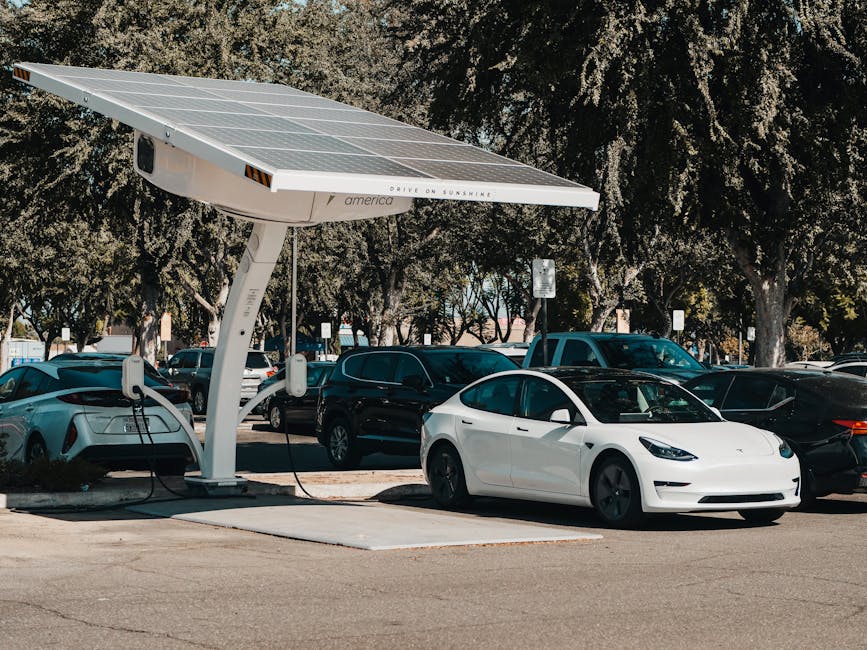Doug Boucher
Article for the December 2023 issue, Monocacy Monocle
As electric vehicles (EVs) become more and more common on our roads and their prices keep dropping, we can start to see that they will lead to some important changes in how we live. Some of them are pretty obvious. Since EVs cost considerably less to run and to repair than gasoline- or diesel-powered cars and trucks, they’ll leave their owners with more money in their pockets. But other changes might be quite surprising, bringing benefits even to those who never buy a car.
We’re accustomed to having our car trips punctuated by stops at gas stations. We’d never imagine that we might gas up at our house or at our workplace. But with EVs, those are exactly the places where we’ll do most of our charging up. The estimates are that 75% or more of EV charging will take place overnight at home, and another 10 or 15% during the workday while our cars are parked. That means that only a small fraction of EV charging will have to be done at the electrical equivalent of today’s gas stations. Installing chargers will certainly be a critical element of the EV transitions – but putting those chargers along the interstates and at the parking spots for people who live in apartments and town houses, will be key. Additionally, the signs showing the price of gas in big letters – our society’s shorthand for whether inflation is a problem or not – may become as obsolete as dial telephones.
Once there are a lot of EVs being charged while parked overnight, there’ll be another change that has no parallel in today’s gas-powered world. The flow of electricity between the grid and car batteries will be able to go both ways, so that when the demand for electricity is high, we’ll be able to sell the excess amounts stored up in our EV batteries back to the grid. Storage is one of the best ways to deal with the variability of solar and wind energy, and when a lot of EVs are plugged in, they can effectively function as a giant storage battery for the whole grid.
The growth of the EV fleet will also impact farm production and land use, because about a third of the corn that the U.S. produces gets turned into ethanol which is added to gasoline. Likewise, some of the soybean crop is converted into biodiesel, which is added to diesel fuel. With electric vehicles, there’s no liquid fuel, so the ethanol and biodiesel are no longer needed. This means that the two crops that occupy the most acreage in our country (and in our county), will have an appreciable drop in demand. The implications for agricultural land use could be quite substantial.
Two other impacts of the spread of EVs are predictable, but it’s unsure whether we’ll notice them. They’re both due to the inefficiency of the internal combustion engine, which generates a lot of noise and releases a lot of heat as it runs. Thomas Edison said in 1910, “The scheme of combustion in order to get power makes me sick to think of – it is so wasteful.”
Electric motors, because of their higher efficiency, are both quieter and cooler. So, both traffic noise and urban heat will be reduced as EVs replace fossil fuel vehicles. Whether the reductions will be substantial enough to make a perceptible difference is uncertain, since there are other sources of traffic noise (e.g. brakes, tires, wind) and urban heat (e.g. buildings). But the possibility of an improvement in the soundscapes and micro-climates of cities is something worth looking for.
Thus, we can anticipate some things we now take for granted, will become more and more unusual as EVs become widespread. Twenty years ago when I first bought a hybrid car (a 2004 Honda Civic), what impressed me the most about it was how “normal” it seemed. It drove just like the gasoline-powered Civic I had beforehand, and the only thing different was less frequent stops at the gas station (and more dollars left in my wallet). But with the growth of EVs, that won’t be the case anymore. There’ll be a new – and mostly better — normal.
Bio tag: “Doug Boucher is a retired scientist and the President of Poolesville Green.”

